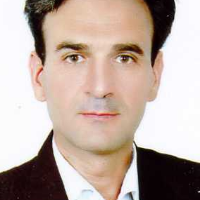Restoring Necessities and Functions of Royal Institute Under Azudu-Dowla
Author(s):
Abstract:
Islam's entrance into Iran made many of Iranian's theoretical bases faced with serious challenges in the intellectual sphere. Among them, the royal institute and its musts as one of the basic axes of the political thought of Iran-state was held to be in opposition to the new intellectual system. With the decline of Abbasid dynasty and formation of Iranian governments, there were attempts to restore some of the elements of political thought of Iran-state. Success of failure in achieving this goal depended on various factors. Al Buya were more successful to restore Iranian traditions of Sasanid period due to their intellectual credit. Therefore, the subject of the study has been investigated in the period under Azudu-Dowla as the greatest and most powerful king of Buwahid dynasty to assess his power in achieving this goal. The findings of this study show that Azudu-Dowla was seeking, deliberately, to gain the position of Sasanid kings with the same necessities and functions. Of course, he as a true Shiite ruler understood the conditions of his society and was seeking to create a combination of Iranian-Islamic models with Shiite leanings, and was most successful in his attempt.
Language:
Persian
Published:
Shiite Studies, Volume:13 Issue: 49, 2015
Page:
55
https://magiran.com/p1499085
مقالات دیگری از این نویسنده (گان)
-
Analysis and explanation of "Khish-kari" discourse in historical and literary texts of the first half of the 7th century AH(Case study of Juwayni's Jahan-gusha, Sa`di's Bustan & Gulestan)
*, Masoud Safari
Journal of Historical Perspective & Historiography, -
The effect of Taqiyya (precautionary dissimulation) on the religious developments and sectarian relationships in Iran (from the entry of Islam to Iran to the end of the Seljuk period)
Sasan Tahmasbi *,
Journal of Historical Findings,



